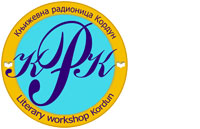 |
 |
     |
|
|
Prose 
detail from: Guernica, painting of Pablo PicassoMEETING THE ROMANTICISM OF THE XXI CENTURY Arthur Rimbaud (1854 – 1891 – 2019) 165 years since the birth of Rimbaud I Camus wrote about Rimbaud as a poet who was “a poet of revolt in his work only”. Many other aestheticians and philosophers consider Rimbaud a poet of revolt as well. Camus also called him the greatest poet of revolt, and in his texts on Rimbaud, he advocated the ideas of aesthetics, according to which, the work itself is applicable for the evaluation of poets.In Camus’ texts, one can also see the reliance on Kant’s theory of the gift of nature, i.e.genius, which, as many aestheticians consider, was easily rejected in the mid-1950s. Then the door was opened for unprecedented attacks on art in the form of the activities of numerous non-talents and conceptual practitioners. Kant’s contribution to aesthetics lies also in the fact that he points out the importance of the question of what art is not and what art cannot be. According to Kant, the creation of art requires one and the most important quality that an artist should have – a natural gift, the one that is obtained by the “grace of nature”.Great gifted artists are characterised by productivity, originality, uniqueness. The revolt and greatness of Rimbaud are reflected in writing from the depths of his being, in listening to his authentic artistic voice, disobedience to taste, the canon of the epoch, down-to-earth clients/employers who did not feel nor understand art. Rimbaud was a metaphysical poet because he wrote from the depths of his being, timelessly. After Rimbaud’s revolt, according to Camus, there was a surrealist revolt, which is “absolute revolt, total disobedience, sabotage taken as law, humour and the cult of the absurd” (Camus, Essays).Rimbaud brought to poetry bold images and new solutions that characterise his poetic language.
II DEPARTING FROM THE CANON OF THE EPOCH The lives of Mozart, Rimbaud and Picasso were highly unusual. All the listed artists differed from the canon of art production of their time, which meant adapting creativity to various clients and employers. According to many aesthetics, the theme, content and style are only fashion aspects of the work. The uniqueness of the work of Rimbaud, Mozart and Picasso stems from the uniqueness and peculiarity of their gift.For all three artists, the common is a free artistic creation. It is quite reasonable to talk about Mozart’s revolt, Picasso’s revolt, Rimbaud’s revolt.Innovative art models like Ramboud’s direct the established canon of art towards new trends, but artists are often recognised only after their death. Individuals with a great and unusual gift often find themsleves in the whirlpool of the maladaptation of their time.The individuals with mediocre gift generally strive for privileges, which provide them with the respect of society during their lives. Rimbaud made the leap to freedom, and that leap – often – carries great risks. Nothing is more destructive for a real artist than subordinating one’s artistic peculiarity, artistic fantasy to the social canon of artistic production, paved through tradition and secured through the power of reception of critics and audiences in accordance with what has already been seen.Artists who fantasise and experiment must be ready for opposition. There will always be artists going beyond the canon of the art of their surroundings and epoch. Of course, that does not mean that everything is original and artistically valuable. Namely, Kant points out that there is original nonsense as well.However, it would be good to have more critics, journalists, art historians who could recognise the bold endeavours of the artist. Today, in the 21st century, we are overwhelmed by the “works” of conceptual practitioners, “products” that lack the strength of fantasy and the strength of imagination. The time ahead will bring us the conflict of those who defend Kant’s theory of genius, of gift (and who predict the romanticism of the 21st century, the self-consciousness of the gifted) with those who group their theories and alleged paradigms of the postmodernism on the ashes of the postmodern.
Translation Danijela Đorđević |
2025 © Literary workshop "Kordun"   |






